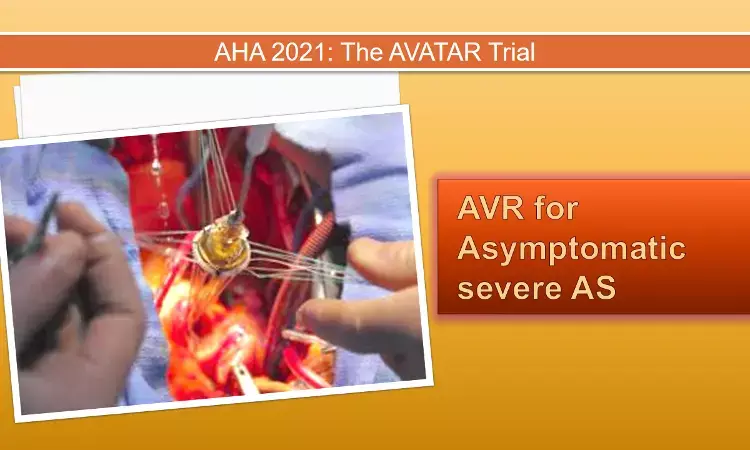- Home
- Medical news & Guidelines
- Anesthesiology
- Cardiology and CTVS
- Critical Care
- Dentistry
- Dermatology
- Diabetes and Endocrinology
- ENT
- Gastroenterology
- Medicine
- Nephrology
- Neurology
- Obstretics-Gynaecology
- Oncology
- Ophthalmology
- Orthopaedics
- Pediatrics-Neonatology
- Psychiatry
- Pulmonology
- Radiology
- Surgery
- Urology
- Laboratory Medicine
- Diet
- Nursing
- Paramedical
- Physiotherapy
- Health news
- Fact Check
- Bone Health Fact Check
- Brain Health Fact Check
- Cancer Related Fact Check
- Child Care Fact Check
- Dental and oral health fact check
- Diabetes and metabolic health fact check
- Diet and Nutrition Fact Check
- Eye and ENT Care Fact Check
- Fitness fact check
- Gut health fact check
- Heart health fact check
- Kidney health fact check
- Medical education fact check
- Men's health fact check
- Respiratory fact check
- Skin and hair care fact check
- Vaccine and Immunization fact check
- Women's health fact check
- AYUSH
- State News
- Andaman and Nicobar Islands
- Andhra Pradesh
- Arunachal Pradesh
- Assam
- Bihar
- Chandigarh
- Chattisgarh
- Dadra and Nagar Haveli
- Daman and Diu
- Delhi
- Goa
- Gujarat
- Haryana
- Himachal Pradesh
- Jammu & Kashmir
- Jharkhand
- Karnataka
- Kerala
- Ladakh
- Lakshadweep
- Madhya Pradesh
- Maharashtra
- Manipur
- Meghalaya
- Mizoram
- Nagaland
- Odisha
- Puducherry
- Punjab
- Rajasthan
- Sikkim
- Tamil Nadu
- Telangana
- Tripura
- Uttar Pradesh
- Uttrakhand
- West Bengal
- Medical Education
- Industry
AHA 2021: AVATAR trial backs early SAVR for asymptomatic severe AS patients

Complementing the evidence gathered from RECOVERY trial, the results of the AVATAR trial presented on Saturday as a late-breaking trial in American Heart Association conference 2021 and simultaneously published in Circulation Journal, have shown that strategy of early valve replacement in patients with severe aortic stenosis even in the absence of symptoms may be more beneficial than watchful waiting.
Surgical aortic valve replacement (SAVR) represents a class I indication in symptomatic patients with severe aortic stenosis (AS). However, indications for early SAVR in asymptomatic patients with severe AS and normal left ventricular function remain debated.
The best evidence to date comes from the randomized, 145-patient RECOVERY trial, which also found that early surgery in those with asymptomatic but severe aortic stenosis was associated with a lower rate of death from CV causes over 6 years of follow-up compared with conservative medical management (1% vs 15%).
The AVATAR trial was an investigator-initiated international prospective randomized controlled trial that evaluated the safety and efficacy of early SAVR in the treatment of asymptomatic patients with severe AS, according to common criteria (valve area ≤1 cm2 with aortic jet velocity >4 m/s or a mean trans-aortic gradient ≥40 mm Hg), and with normal LV function. Negative exercise testing was mandatory for inclusion- a criteria that was not followed in RECOVERY trial and was its major limitation.
The causes of aortic stenosis were degenerative valvular disease (84.7%), bicuspid aortic valve (14.0%), and rheumatic valvular disease (1.3%). the key results were:
1. Of 72 patients in the early SAVR group, a mechanical valve was implanted in 53% and a bioprosthetic valve in 47%. Operative mortality in the early surgery group was 1.4%.
2. Twenty-five patients who had been randomized to conservative management underwent SAVR for various indications within a median time of 400 days.
3. At a median follow-up of 32 months, the composite primary endpoint was 15.2% in the early surgery group and 34.7% in the conservative management group.
4. Among the secondary endpoints, which included intraoperative or 30-day mortality, repeated MACE, thromboembolic complication, and major bleeding, there were no significant differences between the two arms.
To summarise, in asymptomatic patients with severe AS, early surgery reduced a primary composite of all-cause death, acute myocardial infarction, stroke or unplanned hospitalization for heart failure compared with conservative treatment. This randomized trial provides preliminary support for early SAVR once AS becomes severe, regardless of symptoms.
AVATAR may be best viewed as anticipatory supportive information leading up to some of the transcatheter RCTs that are currently underway in asymptomatic patients, including EARLY TAVR.
Source: Circulation: https://doi.org/10.1161/CIRCULATIONAHA.121.057639
MBBS, MD , DM Cardiology
Dr Abhimanyu Uppal completed his M. B. B. S and M. D. in internal medicine from the SMS Medical College in Jaipur. He got selected for D. M. Cardiology course in the prestigious G. B. Pant Institute, New Delhi in 2017. After completing his D. M. Degree he continues to work as Post DM senior resident in G. B. pant hospital. He is actively involved in various research activities of the department and has assisted and performed a multitude of cardiac procedures under the guidance of esteemed faculty of this Institute. He can be contacted at editorial@medicaldialogues.in.
Dr Kamal Kant Kohli-MBBS, DTCD- a chest specialist with more than 30 years of practice and a flair for writing clinical articles, Dr Kamal Kant Kohli joined Medical Dialogues as a Chief Editor of Medical News. Besides writing articles, as an editor, he proofreads and verifies all the medical content published on Medical Dialogues including those coming from journals, studies,medical conferences,guidelines etc. Email: drkohli@medicaldialogues.in. Contact no. 011-43720751


